
Note: This article contains spoilers.
Nostalgic, despotism lacks common pop culture today. Steven Spielberg, a tribute to Stranger Things, and a host of pop culture phenomena were all the rage. A single film back then could be powerful enough to be shown in theaters all over the world. Every small American town has a movie theater at the center of the universe. Obsessed audiences watch and re-watch, keep discussing, and maybe even breathe the air of one movie all season long.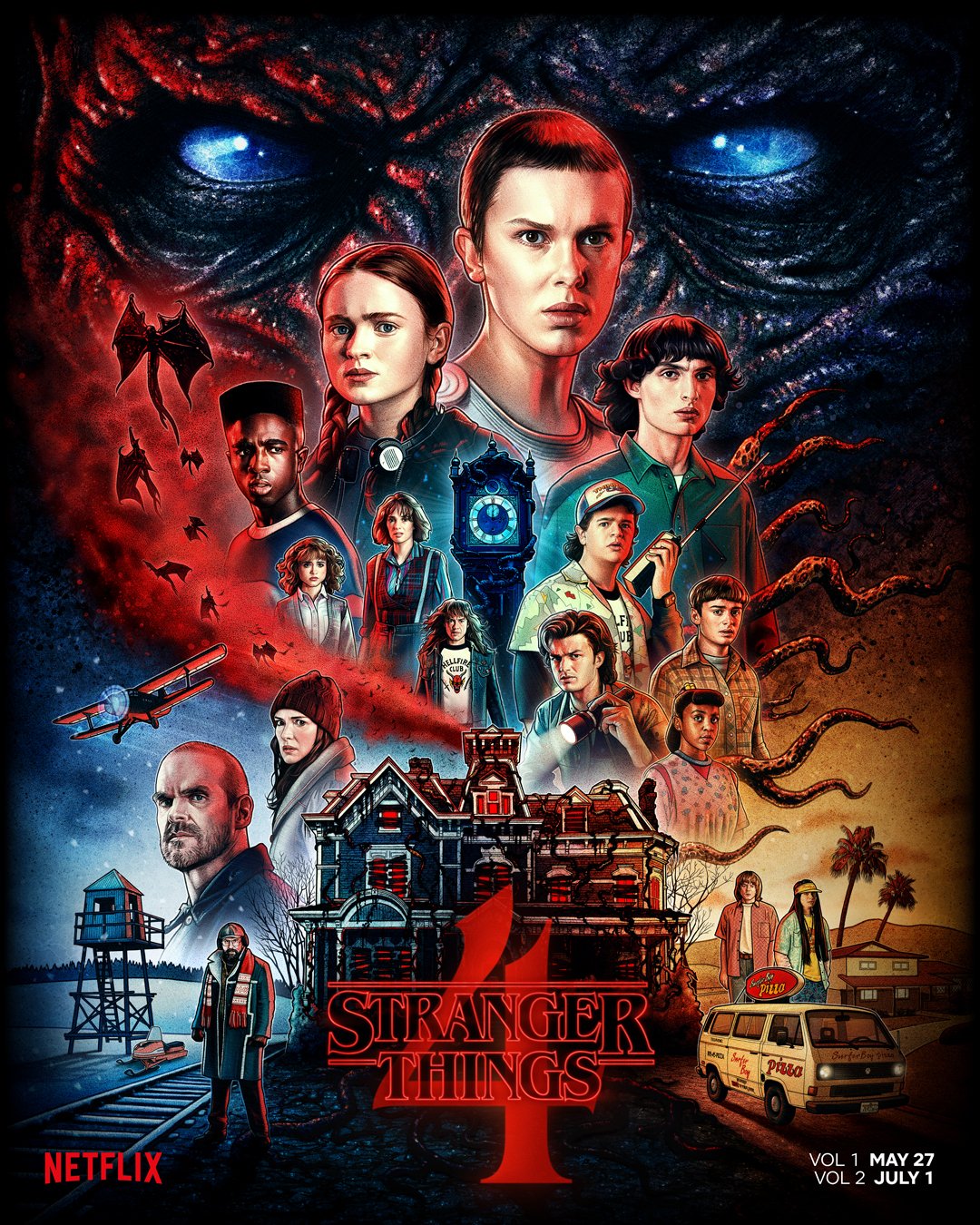
After Netflix launched Stranger Things in 2016, many realized for the first time how much they needed to bask in nostalgia. It’s been around since then that new film and television productions have become increasingly nostalgic, delighting audiences with references to the most familiar, comforting, and pleasurable parts of pop culture it’s been in its glory days. There are more and more stalks and easter eggs buried, and more and more parodies, collages and tributes.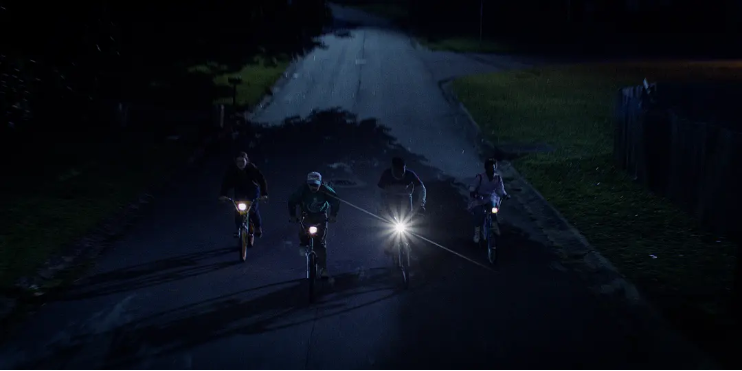
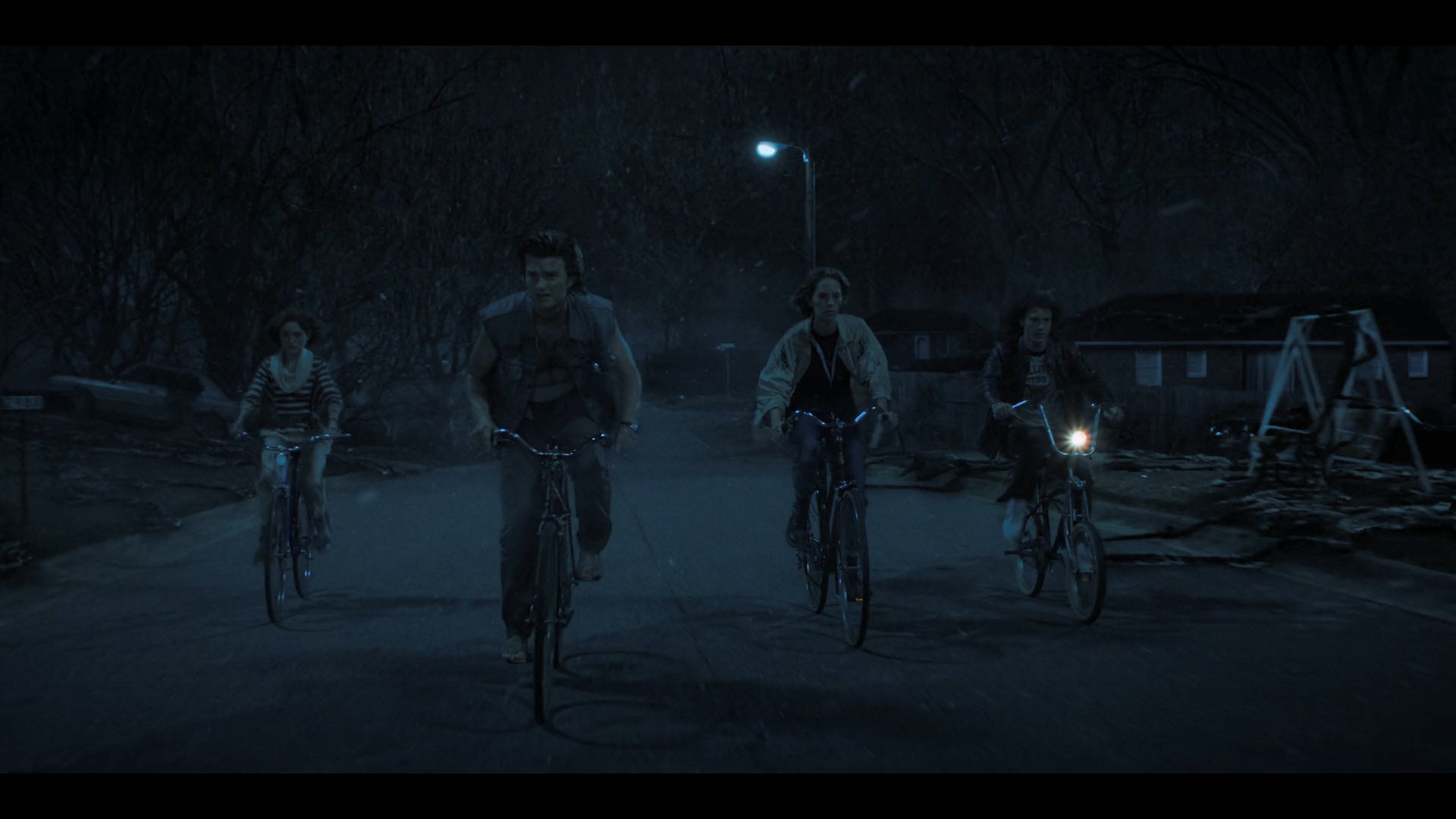
In the soap-bubble serenity of a small American Midwest town in the 1980s, adults don't overprotect children. Their presence is weak, a little annoying at best. Teens are not raised by their parents, but by popular culture. Growing pains come in all shapes and sizes, but one adventure can solve them all. If one doesn't work, then another one, and if one season is not enough, then three more seasons.
There is no real crisis in the world of Stranger Things. While characters did die in the first three seasons, they're still there. In the town of Hawkins, Indiana, the upside-down worlds and the worlds above are often connected to each other, blurring the line between life and death. The crisis faced by the teenage adventure team is game-like. We share the same firm belief as them that in the end we can always rescue our comrade, defeating both man-made and supernatural forces. This belief is so firm that even the most timid audience can look directly at the thrilling and terrifying episodes. Because we know that the original intention of this show is to let people escape from the present tense and sink into the warmth of the good old days.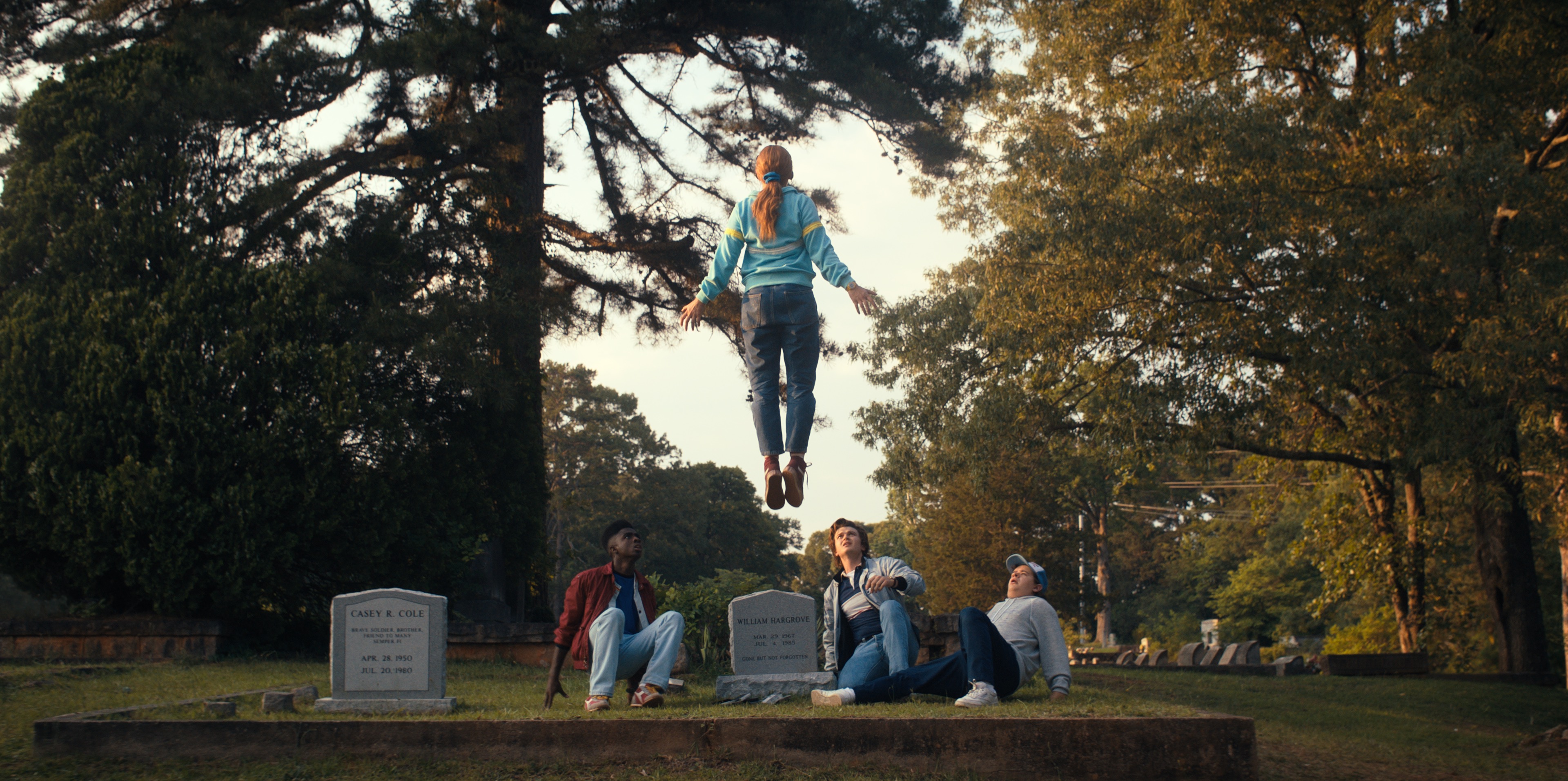
After adding new members, group activities become more necessary, and the multi-line narrative that screenwriters are good at spreads out. Eleven (Millie Bobby Brown) is taken alone to the lab to recover his superpowers and face his own nightmare. The youth group and the youth group were divided into three teams, each performing different tasks. The adult group was sent to the icy Soviet Union, which meant that the teenagers lost the support of powerful adults and had to rely entirely on themselves. Finally they will meet at Hawkins for a dazzling climax.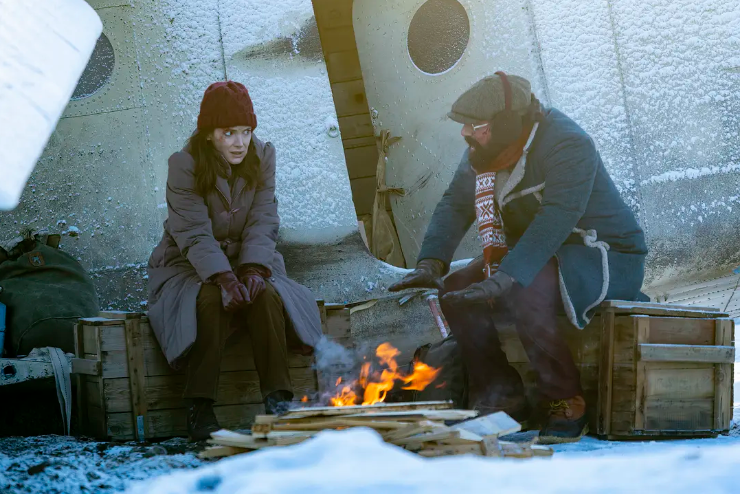
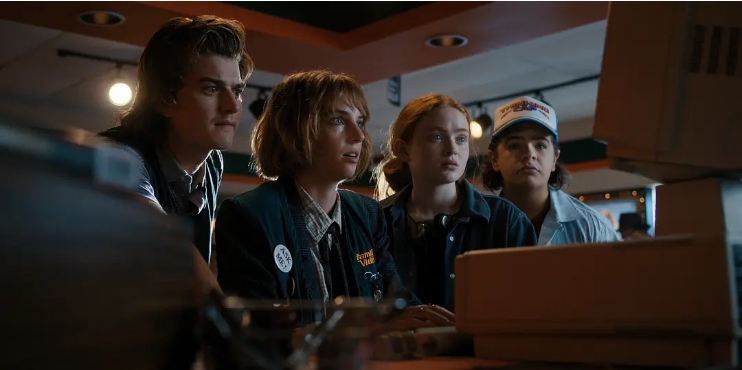
What about friendship and love that are blocked by distance? Once faced with difficulties, the screenwriters Duffer Brothers will make a big move - let the danger come. The characters breathe a sigh of relief and are able to escape the real crisis in these relationships. As long as you embark on the journey, save people and fight monsters, all problems will be written off in the surge of adrenaline. Viewers are comforted by the confidence that the emotional crisis will be properly resolved. But this comfort is too cheap. If the problems are resolved in this way, the established characters in the first three seasons will freeze and stop growing and start to deplete themselves.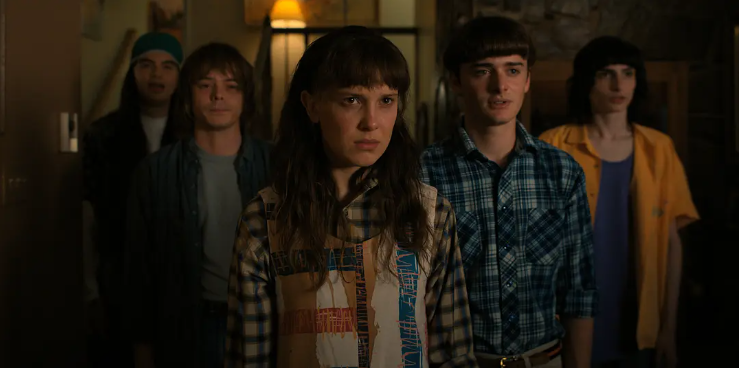
The fourth season is not without touching the reality, but the reality is like the demon world in the first season, which disappears as soon as the clues are revealed. After the tragic death of Max's (Sadie Cink) brother at the end of last season, her stepfather also leaves, and the mother and daughter live in a tough trailer camp. The new character Eddie (Joseph Quinn), who lives next door to her, is in a similar situation. He is as flamboyant as a magician, but his rebellious foundation is fragile. What kind of life will he lead after leaving high school? Jonathan (Charlie Heaton), who decides to give up going to expensive college with Nancy and go to community college to be with his family, explains the decision to his friend Argyle, revealing the bifurcated future. The gap between educational background and class will lead to become an insurmountable obstacle. Basketball stars call nerds' "Dungeon & Dragons Club" a cult, and rock youth shudders in front of basketball stars. The adults believed the instigation of the eloquent basketball star, and the usually tolerant town showed a conservative and gloomy face for the first time.
Yes, the carefree Golden Age town had these real troubles. But the screenwriter stopped short, and magnified the plastic heart demons of other teenagers in the "Monster Street" and "Exorcist"-style duels, so that these narratives that could have been developed were extinguished as soon as they emerged.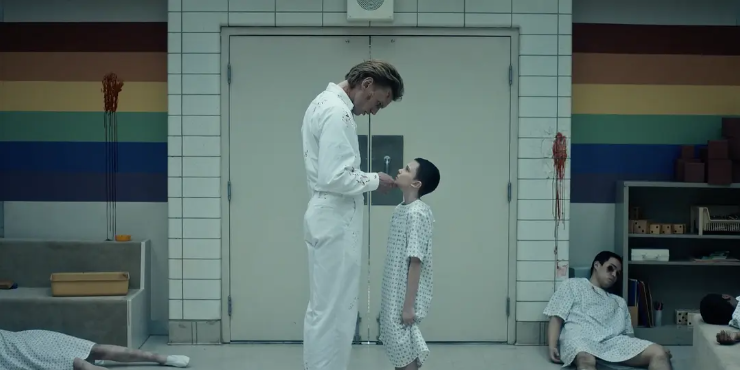
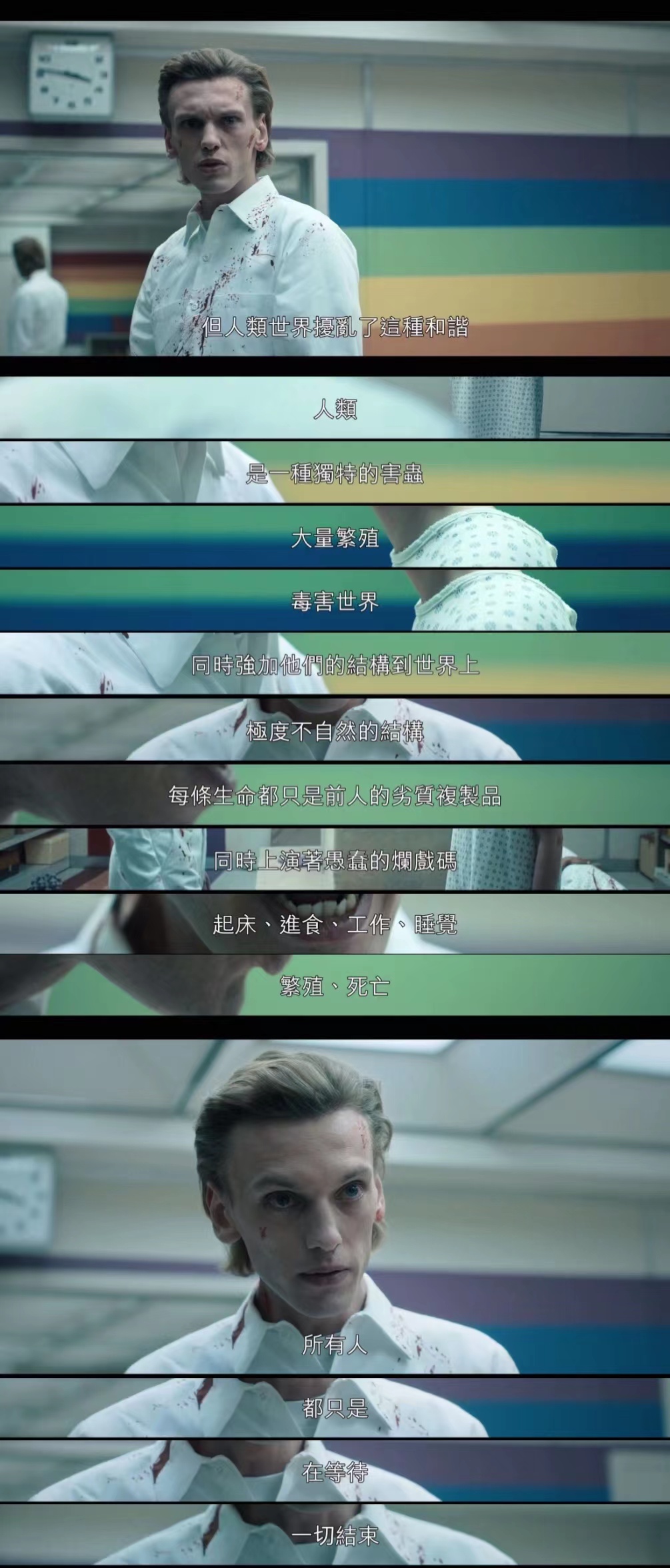
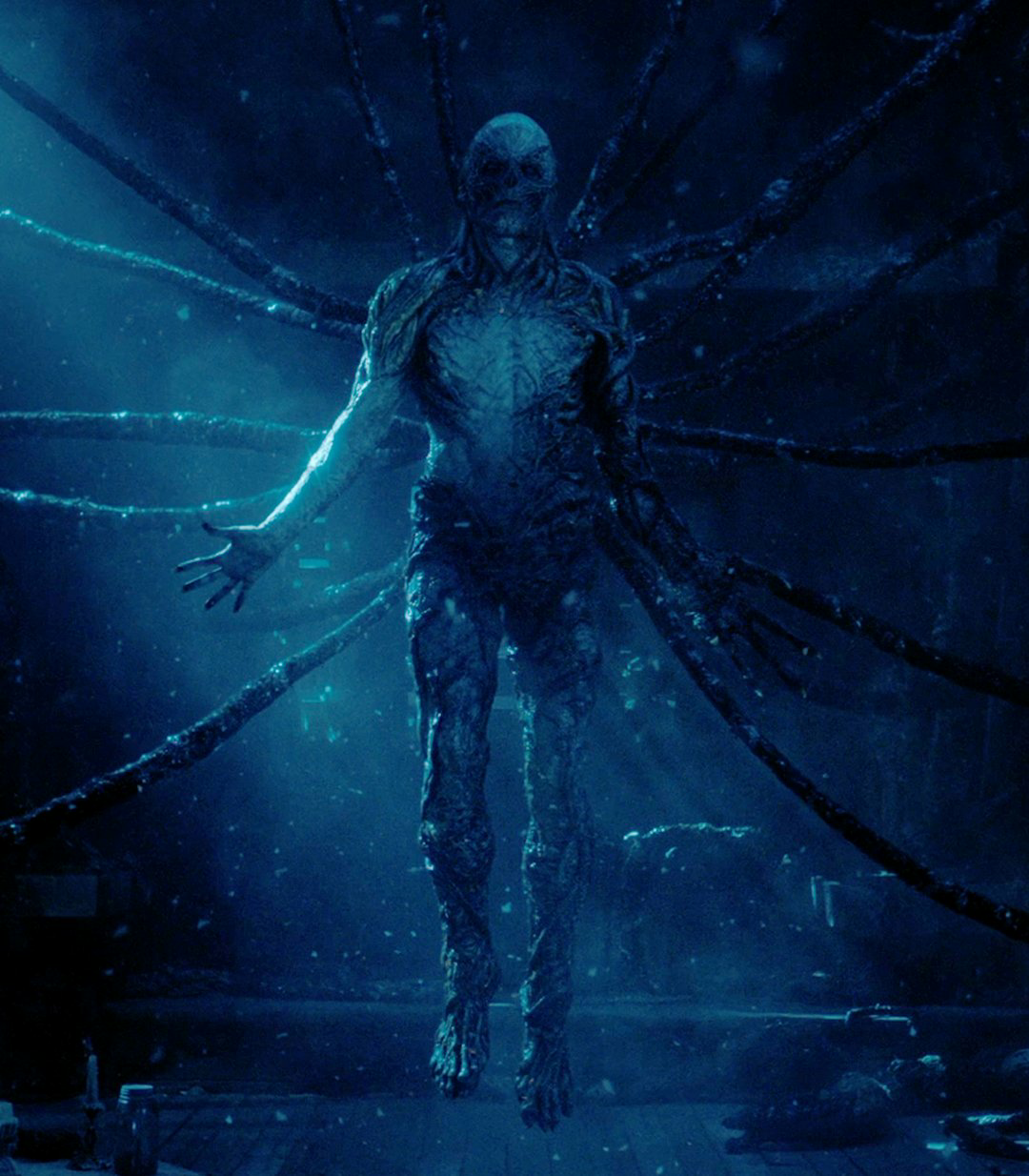
In this case, memories are the source of superpowers, the past holds the key to life and death, and all the sweetness is in the past, who wants the future? We can linger in the nostalgic world all the time, and let today's decaying town be beautified by memory and keep its youthful vitality.
But nostalgia is not an inexhaustible treasure, it will run out. Nor can it be expected that children will not become teenagers, and that fellow teenagers will never grow up and separate. After the last two episodes of the season air, there will likely be a fifth season. Hopefully next season will allow them to really face some growing issues and be less instrumental. Don't rush to fight monsters as soon as a problem arises.
Nostalgic, despotism lacks common pop culture today. Steven Spielberg, a tribute to Stranger Things, and a host of pop culture phenomena were all the rage. A single film back then could be powerful enough to be shown in theaters all over the world. Every small American town has a movie theater at the center of the universe. Obsessed audiences watch and re-watch, keep discussing, and maybe even breathe the air of one movie all season long.

"Stranger Things 4" poster, this season is divided into two parts, the first seven episodes of the first half will be launched on May 27, and the second half will be launched on July 1
Today’s world has changed (it’s no wonder the same), the power of film and TV is growing and falling, and audience attention spans are getting shorter and shorter with the rise of short videos. While we've voluntarily plunged into the world of short videos and social media, oddly enough, if there's something that occasionally revives our attention spans, we'll welcome it with open arms.After Netflix launched Stranger Things in 2016, many realized for the first time how much they needed to bask in nostalgia. It’s been around since then that new film and television productions have become increasingly nostalgic, delighting audiences with references to the most familiar, comforting, and pleasurable parts of pop culture it’s been in its glory days. There are more and more stalks and easter eggs buried, and more and more parodies, collages and tributes.


On the ground and underground, two teams of teenagers ride bicycles in both directions
But even so, by 2022, "Stranger Things" will still be the leader. Four teenagers ride their bicycles through the streets of a quiet town in the middle of the night, towards an unknown forest. There are monsters in the forest, and the flashing lights of the Christmas tree are trapped companions trying to contact you. One of your favorite songs in headphones can save you from misery. These settings and pictures make people feel at ease and happy.In the soap-bubble serenity of a small American Midwest town in the 1980s, adults don't overprotect children. Their presence is weak, a little annoying at best. Teens are not raised by their parents, but by popular culture. Growing pains come in all shapes and sizes, but one adventure can solve them all. If one doesn't work, then another one, and if one season is not enough, then three more seasons.
There is no real crisis in the world of Stranger Things. While characters did die in the first three seasons, they're still there. In the town of Hawkins, Indiana, the upside-down worlds and the worlds above are often connected to each other, blurring the line between life and death. The crisis faced by the teenage adventure team is game-like. We share the same firm belief as them that in the end we can always rescue our comrade, defeating both man-made and supernatural forces. This belief is so firm that even the most timid audience can look directly at the thrilling and terrifying episodes. Because we know that the original intention of this show is to let people escape from the present tense and sink into the warmth of the good old days.

"Stranger Things 4" stills
Although there is no real crisis, but fortunately, initially these characters are not tool people who can only take the audience through the level. They are teenagers and are growing up violently. People who started chasing dramas from the beginning, accompany them to fight monsters with their hearts, and sip the honey of old times; seeing their friendships forged and strengthened, the arc of characters brightened, until six years later, the fleshy faces of children showed adults Outline.After adding new members, group activities become more necessary, and the multi-line narrative that screenwriters are good at spreads out. Eleven (Millie Bobby Brown) is taken alone to the lab to recover his superpowers and face his own nightmare. The youth group and the youth group were divided into three teams, each performing different tasks. The adult group was sent to the icy Soviet Union, which meant that the teenagers lost the support of powerful adults and had to rely entirely on themselves. Finally they will meet at Hawkins for a dazzling climax.

The adult group went to the Soviet Union
Four main lines go hand in hand, and several climaxes also bring exciting effects. Season 4, which is more expensive, longer, and more hilarious, got a head start with an extraordinary length and budget — more than 60 minutes per episode and over $30 million per episode — before it airs. The special effects look richer, there are more locations, and the nostalgia lasts longer. But does this add to the icing on the cake for a show? Under the calculation method of the Netflix platform based on the total viewing time, a longer single episode helps to rank high, so it has a natural advantage to have a strong audience base for the length of the drama. Budget and quality are not necessarily positively correlated. In seven episodes and nine hours, I often couldn't help but lose my mind. Because even a nostalgic drama can't accommodate too many rough character relationships and clichéd character growth stories.
The "Tucao Squad" where Steve (first from left) and Dustin (first from right) are in
The previously easy-to-use Dustin (Gata Matarazzo)-Steve (Joe Keery) friendship model consumes goodwill in routine mutual complaints. So does Steve's relationship with Robin (Maya Hawke), Joyce (Winona Ryder) and Murray (Brent Gilman). When little friends turn into love, they either stay the same (Dustin and a genius girlfriend) or spin wildly in teenage romance cliches: Nancy and Steve rekindle their love in adventure; Lucas and Max Stuck in the "opening heart" link; Eleven and Mike parted as soon as they met, embarrassed under the double torture of long-distance relationship and love in the heart.What about friendship and love that are blocked by distance? Once faced with difficulties, the screenwriters Duffer Brothers will make a big move - let the danger come. The characters breathe a sigh of relief and are able to escape the real crisis in these relationships. As long as you embark on the journey, save people and fight monsters, all problems will be written off in the surge of adrenaline. Viewers are comforted by the confidence that the emotional crisis will be properly resolved. But this comfort is too cheap. If the problems are resolved in this way, the established characters in the first three seasons will freeze and stop growing and start to deplete themselves.

Little Eleven (middle) has grown up
Originally, six years of time and accumulated emotions can best enrich the characters. But flat narratives squeeze them, highlighting their instrumental rather than human nature. In this season, the reunion of Mike and Will is used to show the estrangement of friendship, paving the way for the return of old intimacy. Will is a hint of queerness, fulfilling the curiosity and expectations of fans. Other aspects of Dustin's character are missing. Now he has become the only commander who can use his brain, showing off his tricks and tricks the whole time. Tucao about Dustin turned into a stalk and was repeatedly played with, as if the onion was peeled layer by layer, but unfortunately the innermost layer was still an onion, and there was no delicious fruit. Robin and Argyle (Eduardo Franco) are charming. But the glamour comes from the actors themselves, and it's mostly wasted in gags. They are full of jokes that are not very funny. In addition to providing onlookers' eyes and improving humor, the character function is to follow the team in a panic.The fourth season is not without touching the reality, but the reality is like the demon world in the first season, which disappears as soon as the clues are revealed. After the tragic death of Max's (Sadie Cink) brother at the end of last season, her stepfather also leaves, and the mother and daughter live in a tough trailer camp. The new character Eddie (Joseph Quinn), who lives next door to her, is in a similar situation. He is as flamboyant as a magician, but his rebellious foundation is fragile. What kind of life will he lead after leaving high school? Jonathan (Charlie Heaton), who decides to give up going to expensive college with Nancy and go to community college to be with his family, explains the decision to his friend Argyle, revealing the bifurcated future. The gap between educational background and class will lead to become an insurmountable obstacle. Basketball stars call nerds' "Dungeon & Dragons Club" a cult, and rock youth shudders in front of basketball stars. The adults believed the instigation of the eloquent basketball star, and the usually tolerant town showed a conservative and gloomy face for the first time.
Yes, the carefree Golden Age town had these real troubles. But the screenwriter stopped short, and magnified the plastic heart demons of other teenagers in the "Monster Street" and "Exorcist"-style duels, so that these narratives that could have been developed were extinguished as soon as they emerged.


The origin of everything, Eleven finally remembers the massacre - related to the forgotten one
Eleven's recovery training uses the recall method. She was put into the pool, and her sleeping potential was stimulated by the constant stimulation of memories. This line shows the life of the bullied Eleven—being bullied by other subjects in the lab as a child, and then being bullied by high school classmates after moving to California. The writers did not offer a realistic solution once. Being bullied in childhood is Eleven's superpower and kindness (also a superpower) - saving her from leaving. When she grew up, the girl who beat and bullied her on Eleven was sent to a juvenile detention center, and another shortcut became the solution - she was taken away by a secret government agency. Eleven's line is boring, because the point of a superpower movie isn't to show its omnipotence. Superpowers also require boundaries. Although the rules have been re-enacted, there is still a need for the existence of the line that draws the boundaries of superpowers. Otherwise, when all narrative crises can be resolved by superpowers and kind-hearted mindlessness, the tension of the drama will not exist.
"Stranger Things 4" stills
This season is the first time the demon is personified. The petal-headed demon was still eating people in the Soviet Union before. This season's demon is already a person with a name and a past. The way he absorbs energy is the same as Eleven, relying on painful memories. Eleven revisits her own pain, a demon (originally named Henry Clear) who seeks the pain of others and kills them.In this case, memories are the source of superpowers, the past holds the key to life and death, and all the sweetness is in the past, who wants the future? We can linger in the nostalgic world all the time, and let today's decaying town be beautified by memory and keep its youthful vitality.
But nostalgia is not an inexhaustible treasure, it will run out. Nor can it be expected that children will not become teenagers, and that fellow teenagers will never grow up and separate. After the last two episodes of the season air, there will likely be a fifth season. Hopefully next season will allow them to really face some growing issues and be less instrumental. Don't rush to fight monsters as soon as a problem arises.
Related Posts